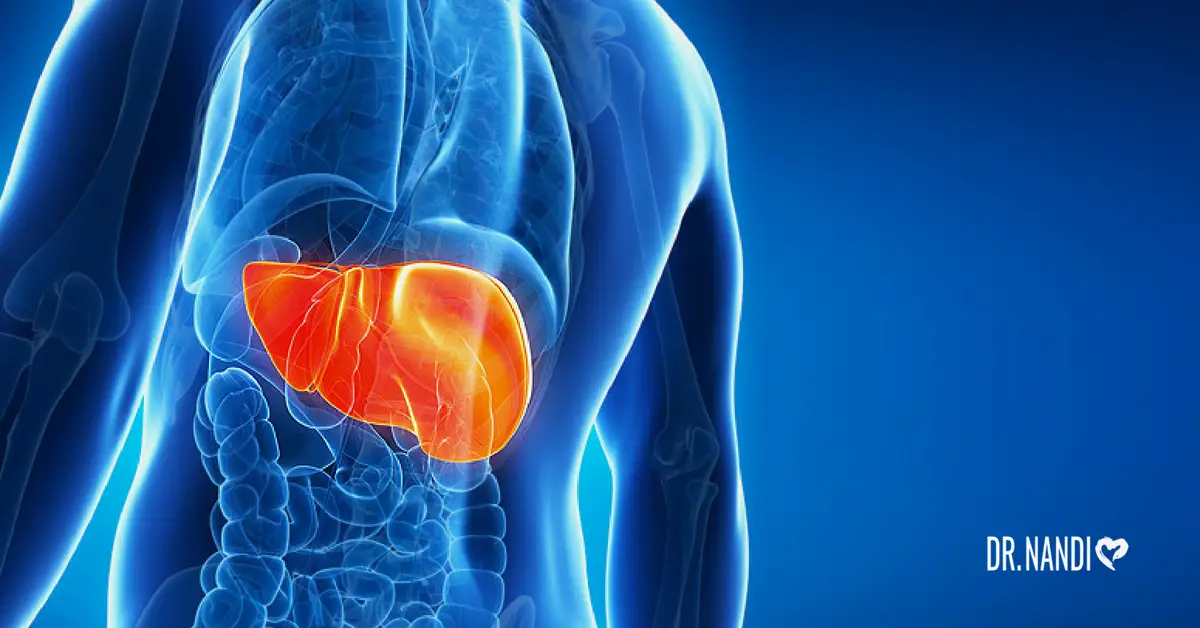Whenever anyone hears the term “Hepatitis,” we all do an internal double-take. Is it the wrong kind?
Hepatitis C is a contagious viral disease that results in the inflammation of the liver and can lead to serious liver damage. This article will precisely discuss Hepatitis C, how it’s transmitted, its symptoms, diagnosis, and treatment options.
What is Hepatitis C?
Hepatitis C is caused by the Hepatitis C virus (HCV). It is a serious disease that can result in the inflammation of the liver. Hepatitis C can be acute or chronic.
Acute Hepatitis C (when you first get infected with Hep C) can last for a few weeks and often has no symptoms. Chronic Hepatitis C can last for years and result in serious health problems, including liver damage, liver cancer, liver failure, or even death!
Hepatitis C is a contagious disease affecting a large number of people. There are nearly 3,000 cases of acute Hepatitis C a year in the US. Not all cases are reported, and the CDC estimates 41,200 actual cases, including unreported ones. About 3.5 million people have chronic hepatitis C. (1, 2, 3, 4, 5)
Is Hepatitis C Curable?
Hepatitis C is now curable through antiviral drugs! Once the virus is undetectable, the condition is considered cured. Chronic Hepatitis C can result in long-term complications and liver damage. The average cure rate is currently at 90 percent.
How Is Hepatitis C Transmitted?
Hepatitis C is transmitted through the exchange of blood, such as (1, 2, 3, 4, 5):
- Injection Drug Use (sharing needles)
- Blood transfusions (before 1992 in the US)
- Tattoos
- Organ transplant
- Sharing razors, toothbrushes, and similar items
- Childbirth
Symptoms Of Hepatitis C
- Tiredness and fatigue
- Muscle soreness
- Stomach pain
- Upset stomach
- Diarrhea
- Loss of appetite
- Dark-yellow urine
- Fever
- Jaundice (yellowish eyes and skin)
People with chronic Hepatitis C may not experience symptoms for a long time or at all.
How Is Hepatitis C Diagnosed?
In many cases, the Hepatitis C virus is mistaken for other, less severe viral infections during the acute phase. It makes diagnoses of acute Hepatitis C rare.
About 20 percent of people with acute Hepatitis can clear the virus without medical assistance. The remaining 80 percent will turn chronic unless diagnosed and treated in the acute phase.
Current screening tests involve a simple blood test called an HCV antibody screen.
The results cannot determine an ongoing infection. Negative results mean that the person has not been exposed to the virus, while positive results show exposure but cannot prove an ongoing infection.
In case of a positive result, doctors order a second blood test, called HCV RNA (PCR), to show whether or not the virus is still present.
If the second test is positive, patients will be sent to a liver specialist trained to treat HCV.
Positive antibody tests will remain favorable for the person’s life whether or not the virus is present and active in their bodies. It makes the HCV test and seeing a liver specialist necessary.
If there is a chronic infection, further testing can determine the virus’s genotype to help determine the cure rate, preferred medications necessary, and the length of the treatment.
In some cases, a liver biopsy or a fibroscan is necessary to check for the severity of the disease, the extent of liver damage, and complications. (1, 2, 3, 4, 5)
Are Hepatitis C Tests Accurate?
In most cases, Hepatitis tests accurately determine whether the person has contracted the virus or not. False positives occur in a small number of cases because the person has developed “cross-reactive” antibodies to clear another infection. False negatives can also occur during the first 6 weeks of contracting the virus, called the ‘window period’ before the immune system has developed antibodies but has already contracted the virus. If there is a chance of infection based on symptoms or lifestyle, the second test after 6 weeks can determine whether it was a false or true negative. (6)
Complications of Hepatitis C
Chronic Hepatitis C, mainly if it stays around for 20 years or longer, can result in serious complications and organ damage, including (1, 2, 3, 4, 5)
- Fibrosis
- Cirrhosis (liver scarring)
- Liver failure
- Liver cancer
How Hepatitis C Is Treated
Though vaccines protect against Hepatitis A and B, there is currently no vaccine for Hepatitis C. Research efforts are ongoing to create one.
Both acute and chronic Hepatitis C is treated with antiviral medication that is highly effective and well-tolerated.
Those with chronic Hepatitis C are at risk of developing cirrhosis (scarring of the liver) or liver diseases. They may end up needing a liver transplant.
They are also at risk of liver cancer, making regular testing and possible cancer treatment necessary. (1, 2, 3, 4, 5)
Frequently Asked Questions About Hepatitis C
Are Hepatitis C and AIDS the same thing?
A. No, they are two different diseases caused by other viruses. HIV causes AIDS. Hepatitis C is an infection of the liver caused by the Hepatitis C virus. Having both AIDS and Hepatitis C is expected. If you have both HIV and Hepatitis C, you have HIV and Hepatitis C coinfection.
Can Hepatitis C be cured?
A. Yes! There are highly effective medications to cure her Hep C. You are considered cured if the virus cannot be detected anymore. It is called a sustained virologic response.
What’s worse, Hepatitis C or B?
A. Both infections can become chronic and turn fatal. Hepatitis B, however, is associated with higher liver-related mortality.
Will Hepatitis C kill you?
A. Hepatitis C can take a serious toll on your body, leading to death. However, many folks live a normal healthy life if detected and treated.
Why isn’t there a vaccine for Hepatitis C?
A. So far, creating a Hepatitis C vaccine has been unsuccessful despite over 25 years of research and failed attempts. Research is ongoing. There are two current trials of experimental vaccines (therapeutic vaccine trial, prophylactic/preventative vaccine trial) that show promise of being safe and effective in people. If these trials show promising results, eventually, they may lead to Hepatitis C vaccines in the future.
Conclusion
Hepatitis C is a serious infection. There are currently no vaccines for it; however, testing and treatment options are available with high cure rates. Seeing a liver specialist is essential to determine and treat possible complications and liver damage.
I hope you’ve found this article helpful. Share your feedback and questions in the comments section below.
References:
- https://www.niddk.nih.gov/-/media/6CACD9C080B448A69169A9E0D43659E3.ashx
- http://www.who.int/en/news-room/fact-sheets/detail/hepatitis-c
- http://www.idph.state.il.us/public/hb/hbhepc.htm
- https://www.cdc.gov/hepatitis/hcv/cfaq.htm
- https://www.webmd.com/hepatitis/ss/slideshow-hepatitis-c-overview
- https://www.hepmag.com/article/false-test-result-25760-476718382




















